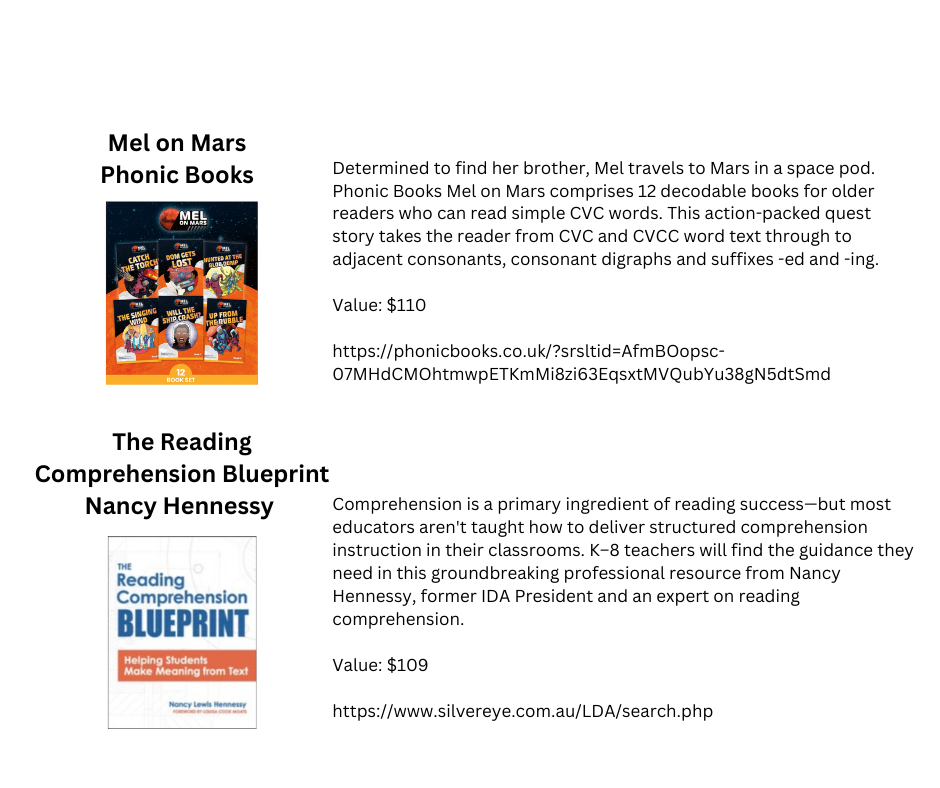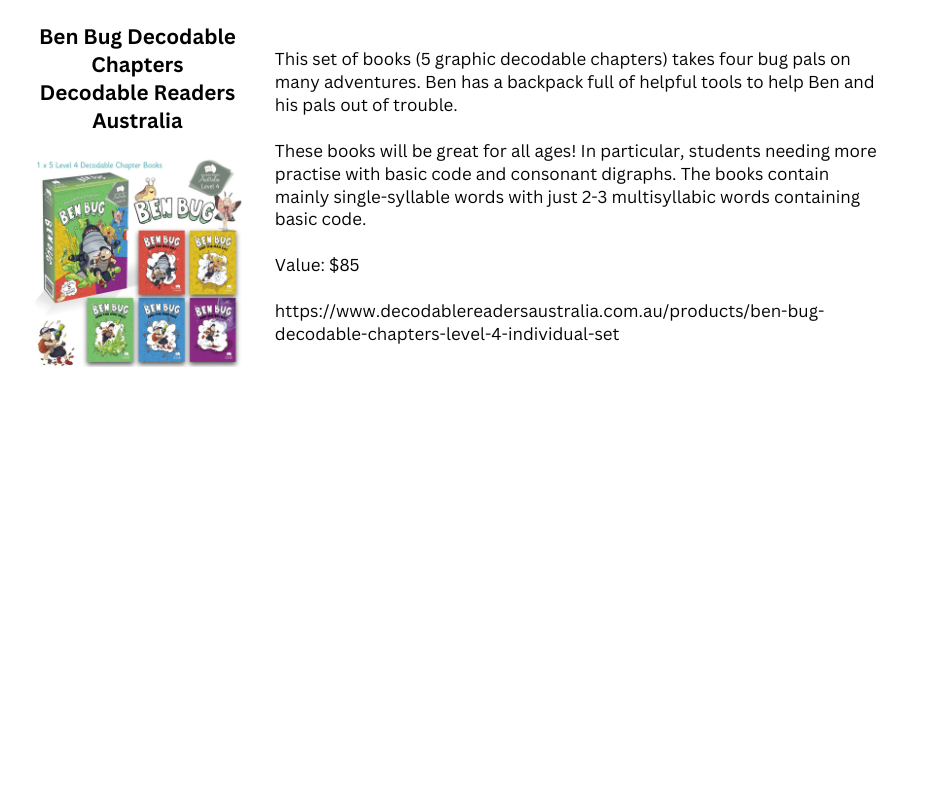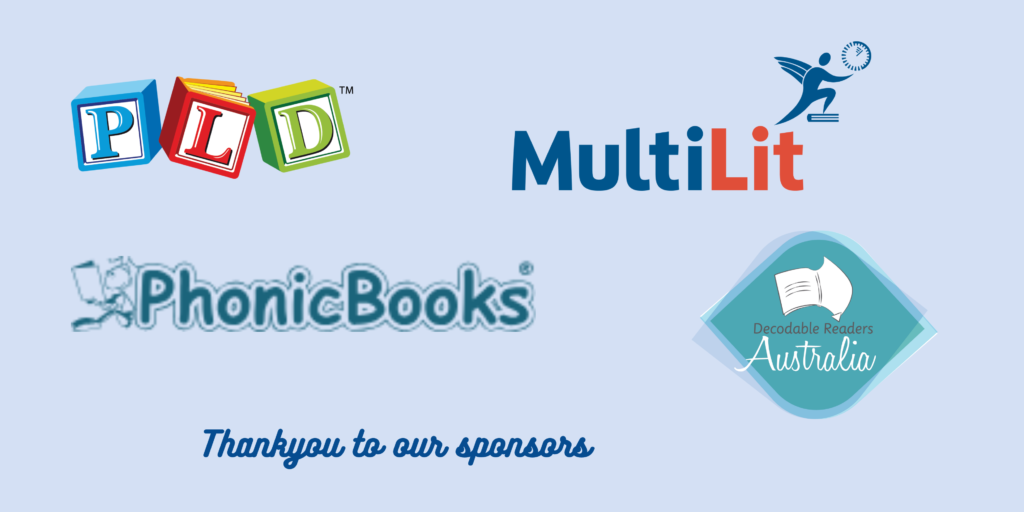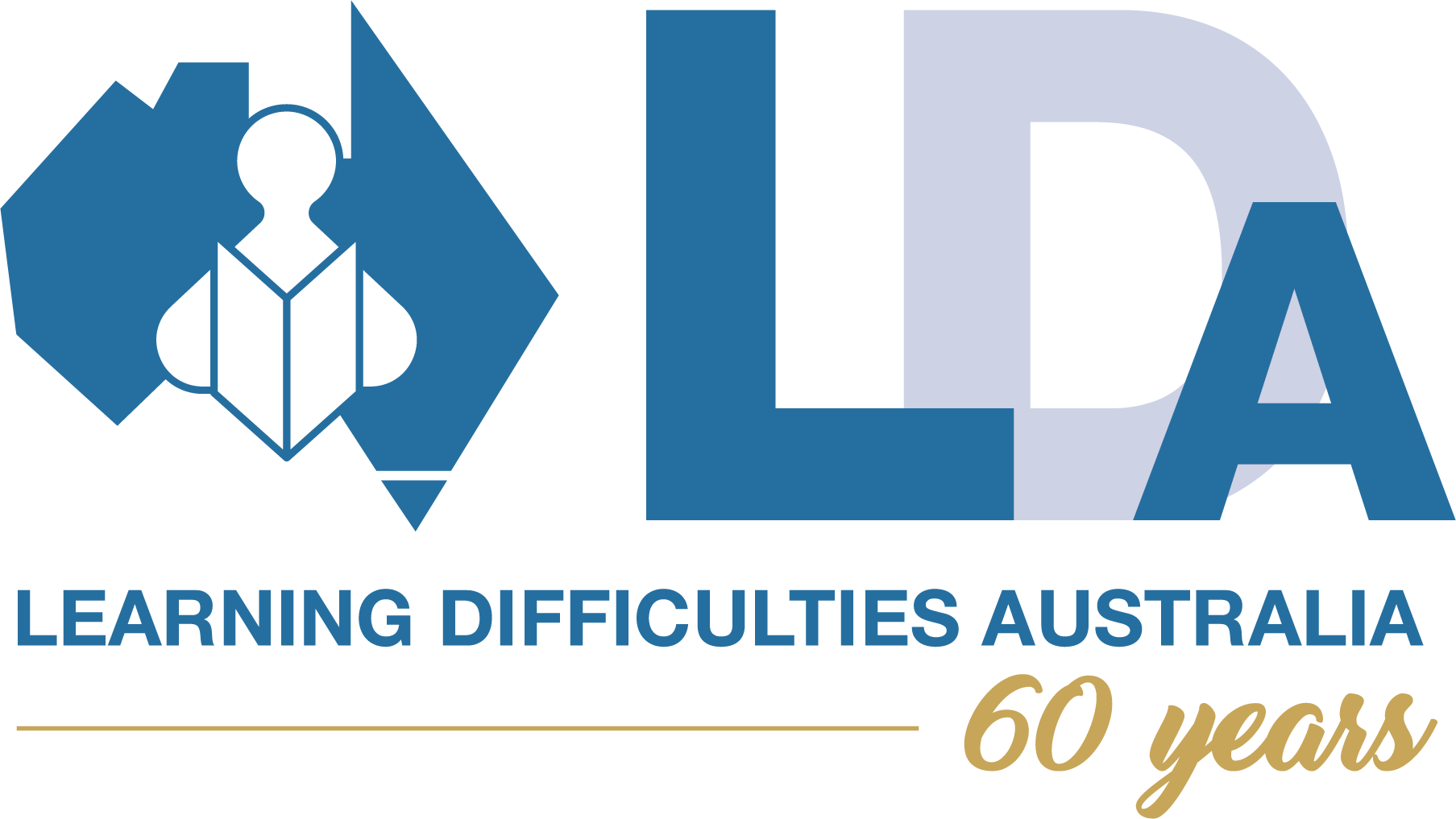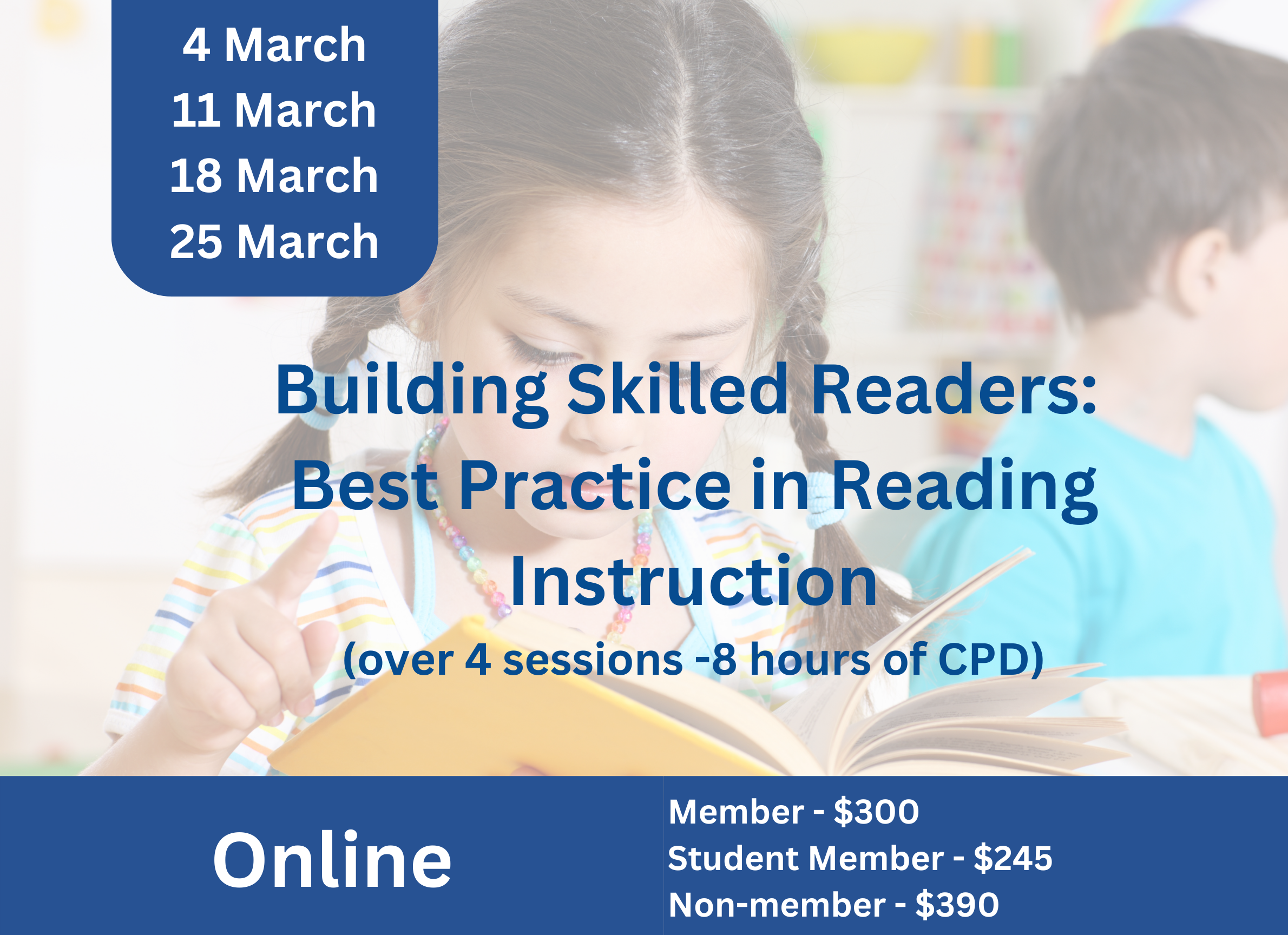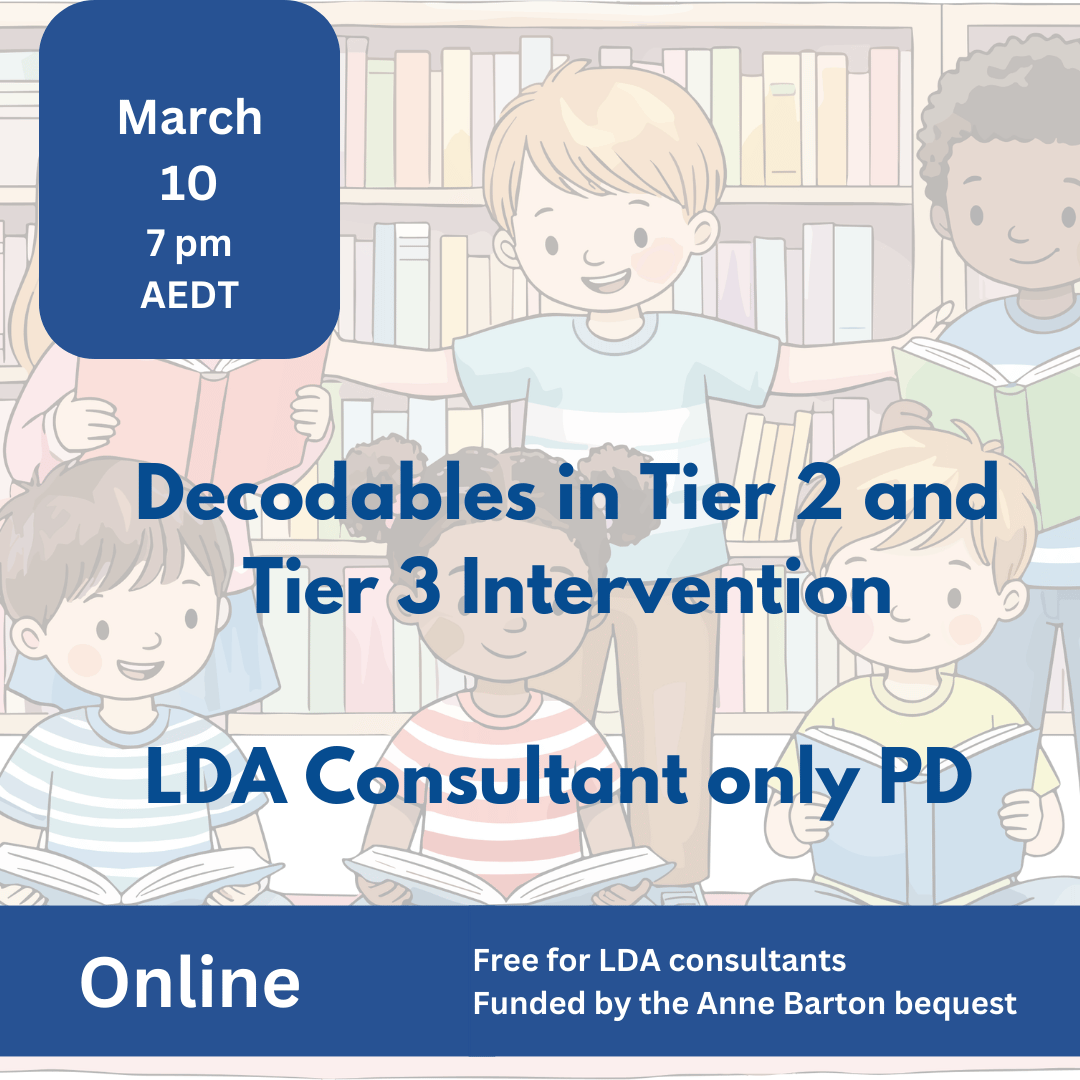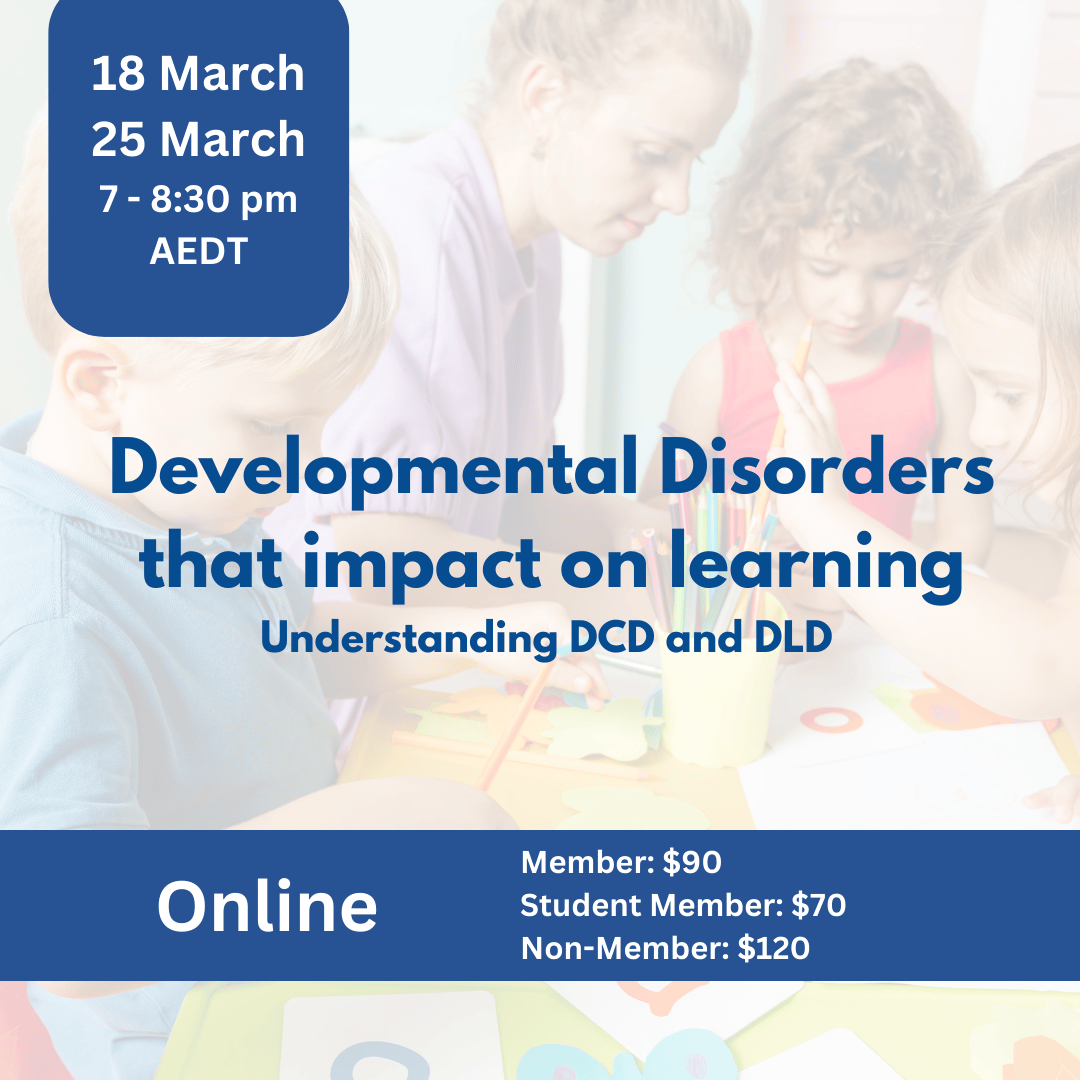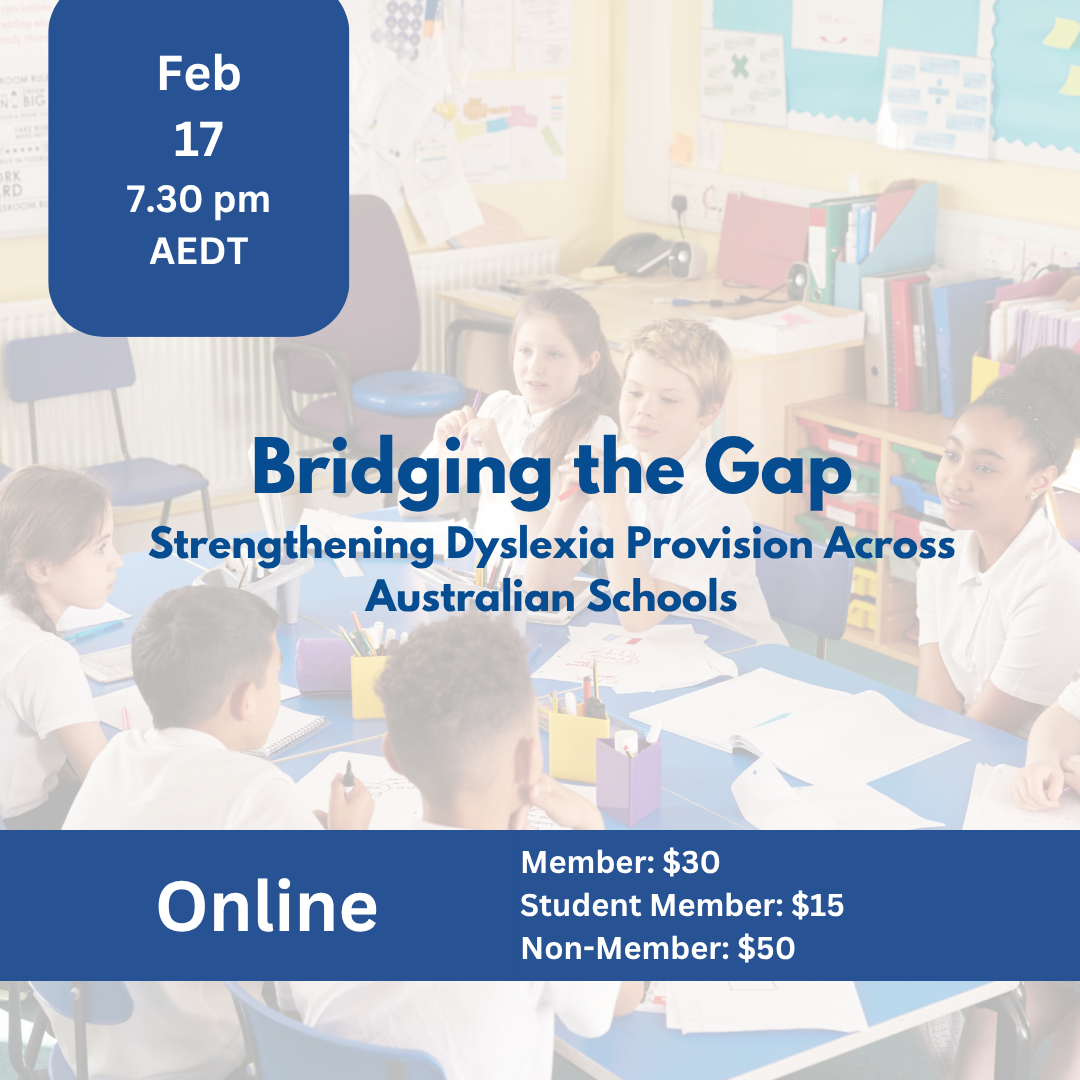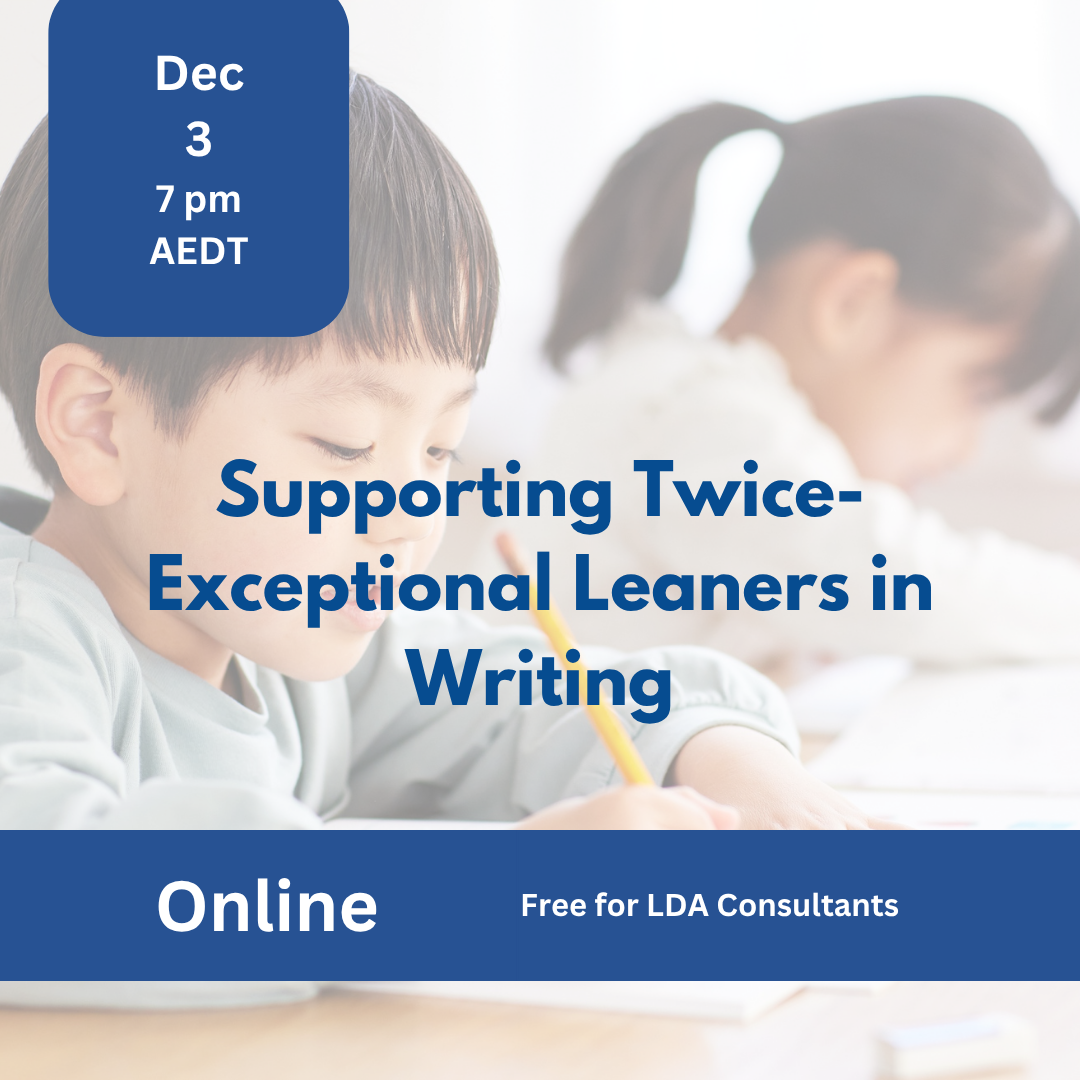This course will be based on Scarborough’s Reading Rope (Scarborough, 2001) and include presentations on supporting both primary and secondary students to become skilled readers, focusing on both word recognition and reading comprehension. This course will be run over four sessions on the following dates:
Tuesday 4th March 12pm – 2pm AEDT (Melbourne time)
Tuesday 11th March 12pm – 2pm AEDT
Tuesday 18th March 12pm – 2pm AEDT
Tuesday 25th March 12pm – 2pm AEDT
** Recordings will be available for one month after the event **
Cost:
LDA Member: $300
LDA Student Member – $245
Non-Member – $390
Bookings
The live course has concluded but the recording is available on our on-demand learning shop.
Presentations
Evidence-based foundations of the science of reading – Dr Jennifer Buckingham
The theories and research that underpin the evidence base known as the science of reading have been tested and validated in numerous studies over many decades. In this opening presentation, Jennifer will provide an overview of the fundamental theoretical frameworks for the components and development of reading to set the scene for the subsequent presentations that connect them to evidence-based practice.
Mastering Decoding and Word Recognition Skills – Lisa Bellman Ansell & Sarah Collins
Evidence-based reading instruction using decodable text is explicit and engaging, building students decoding, reading fluency and comprehension skills. As part of our exploration into decoding, we will look at the process of how we learn to read, what makes a good reader, how to choose the right decodable books for your students and how to plan an effective small group reading session.
Reducing the reading gap in a secondary setting – Stasha Demosthenous & Christine D’Arcy
A multi-tiered system of support (MTSS) to improve reading comprehension in a secondary setting will be outlined in a session that will be relevant for upper primary and secondary school leaders and teachers. Participants will learn how teachers and leaders across all year levels and learning areas at Parafield Gardens High School have been implementing and measuring the impact of a Tier 1 explicit vocabulary instructional routine (VIR) that incorporates a focus on subject-specific word morphology before taking a deep dive into the school’s Tier 2/3 Reading Acceleration Program (RAP) for Year 7 and 8 students with word reading (decoding) ages at or below 10 years. Participants will be shown lots of examples of what reading intervention in a secondary setting can look like and the positive outcomes that can be achieved for older struggling readers
Supporting struggling older readers with multicomponent literacy interventions – Melinda de Haan
Multicomponent literacy interventions aim to bridge the knowledge gap between students with reading difficulties and their peers, empowering students to engage in their classroom work. This presentation will explore how to plan multicomponent literacy interventions for older struggling readers (upper primary and secondary).
Assessing Reading Progress: Standardised, Diagnostic, and Formative Tools for Success – Jacinta Conway
This session will explore how reading assessments can be effectively integrated within a Multi-Tiered System of Support (MTSS) and Response to Intervention (RTI) framework to enhance literacy outcomes.
Participants will learn how assessments function across all tiers of instruction, from universal screeners that identify students at risk, to standardised and diagnostic tools that guide targeted interventions for Tier 2 and Tier 3 students. The session will also address the role of formative assessments in monitoring progress and shaping classroom instruction in Tier 1 settings.
The presentation will highlight practical resources, including free assessment tools for decoding skills, alongside formal assessments like the WIAT. Guidance will be provided on how schools can create an effective assessment schedule that aligns with literacy goals and supports data-driven decision-making.
Real-world case studies will demonstrate how to interpret and apply assessment data to inform teaching, design interventions, and track student growth. Attendees will leave equipped with actionable strategies to implement robust reading assessment practices within their schools, ultimately supporting the development of skilled and confident readers.
Language Comprehension: A pathway to proficient reading – Nancy Hennessy
The Reading Rope, a visual metaphor for skilled reading, provides an explanation of the complexity and interwoven nature of reading acquisition. It offers a powerful picture of the two major parts of the rope, word recognition and language comprehension. We know that “skilled reading requires the fluent execution & coordination of word recognition & text comprehension (Scarborough, 2002).” The science is clear- language comprehension is foundational to constructing meaning of text. This session will focus on the upper strands of the reading rope including vocabulary, language structures, text & background knowledge as well as inference. The informed educator understands the nature of each, their individual, as well as collective, contributions, to reading comprehension. But, most importantly, they recognize the implications & connections to the design & delivery of effective comprehension instruction.
From listening to understanding: The keys to comprehending language – Laura Glisson
In this session, Laura will present on evidence-based and evidence-informed oral language instruction to support the development of reading. With a particular focus on vocabulary, background knowledge and sentence comprehension, Laura will bring a range of practical strategies for immediate implementation in the classroom that will support all learners, including those with language disorder.
Speakers
Dr Jennifer Buckingham
Dr Jennifer Buckingham OAM is the Executive Director of the Centre for Education Statistics and Evaluation (CESE) in the NSW Department of Education. Prior to that, she was Director of Strategy and Senior Research Fellow at MultiLit, and Senior Research Fellow at The Centre for Independent Studies. Jennifer was the founder of the Five from Five project. She is co-editor and co-author of the textbook Effective Instruction in Reading and Spelling (MRU Press, 2023) which is used in teacher education courses in universities in Australia, New Zealand, Ireland and Scotland, and An investigation of literacy instruction and policy in the United Kingdom and Ireland (Churchill Trust Australia, 2024). Jennifer is a board member of the Australian Institute for Teaching and School Leadership (AITSL), a Fellow of the Royal Society of New South Wales, and an Adjunct Associate Professor at La Trobe University.
Lisa Bellman Ansell
Lisa is a teacher, reading intervention specialist and national trainer for the Little Learners Love Literacy program. She has been a facilitator for the Victorian Education Department, delivering the Inclusive Online course Understanding Dyslexia and Significant Difficulties in Reading and has spoken at The Reading League Conference in New York, USA and the Dyslexia SPELD Foundation conference held in Perth, Australia. Lisa uses these platforms to advocate for all children with reading difficulties. Lisa keeps herself up to date with the latest in Literacy research by attending regular seminars, workshops and training courses to assist in developing programs and classes relevant to each individual child’s needs
Sarah Collins
Sarah has over 20 years’ experience as a primary school teacher and early childhood educator. Sarah has worked in both the catholic and private school sector and has held roles that include classroom teacher, year level coordinator, Literacy Coach and Literacy Leader. She has a Master of Education specialising in Literacy Intervention from Melbourne University and enjoys presenting information webinars for Little Learners Love Literacy. Sarah’s strongest passion was teaching early childhood. It was while in the prep classroom that she discovered how vital it is to build strong foundations so little learners can grow and succeed.
Stasha Demosthenous
Stasha is the Literacy Coordinator at Parafield Gardens High School. Having started her career as a Year 6/7 Teacher she moved to the Secondary setting when Year 7 transitioned to High School in South Australia. Stasha is passionate about literacy and the importance of building teacher knowledge and capacity to develop all students’ literacy skills. Since joining PGHS, she has worked with the staff to develop their knowledge of vocabulary and morphology using high impact teaching literacy strategies. Stasha also coordinates the school’s Tier 2 Reading Acceleration Program (RAP). Based on the Sounds-Write program, RAP has improved the decoding skills of many Year 7 and Year 8 struggling readers at PGHS.
Christine D’Arcy
Christine is a senior speech pathologist with the South Australian Department for Education and based at Parafield Gardens High School. She has worked alongside the school’s leadership team to implement a literacy screening process, a tiered intervention approach to catching up struggling readers and provides one-on-one intervention for struggling older readers.
Melinda de Haan
Melinda de Haan is a Learning Intervention Specialist with expertise in Specific Learning Difficulties and ADHD. She earned her Master’s in Learning Intervention from the University of Melbourne in 2019 and shortly after led a Learning Diversity team at Camberwell Girls Grammar School, helping teachers implement evidence-based strategies.
Melinda is now part of a philanthropy-funded project between the Royal Children’s Hospital, the University of Melbourne, and the Murdoch Children’s Research Institute, supporting children with complex learning needs. She also provides private literacy intervention at Papillon Paediatrics.
Jacinta Conway
Jacinta Conway is an accomplished educational consultant, curriculum innovator, and literacy specialist with over 20 years of experience across diverse school systems in Australia and the UK. Passionate about transforming educational outcomes, Jacinta champions data-driven, evidence-based practices that unlock learners’ potential.
With expertise in curriculum development and inclusive education, Jacinta bridges the gap between research and practice, equipping educators with science-based literacy tools that ensure all students can succeed. Her specialisations include Tier 3 literacy and numeracy interventions, data-driven assessment, and professional development.
As the Director of a thriving tuition business, Jacinta leads a team of tutors providing personalised support and student acceleration. She has extensive experience designing and implementing RTI strategies, fostering inclusivity, and optimising resources for effective teaching.
Jacinta’s career spans consultancy, instructional coaching, and professional learning design, with a strong focus on accelerating learning and supporting diverse student needs. Known for her collaborative approach and practical strategies, Jacinta works closely with educators and schools to create transformative learning environments.
Her mission is to inspire and empower educators to deliver impactful teaching that supports every learner on their journey to success.
Nancy Hennessy
Nancy Lewis Hennessy is an experienced teacher, diagnostician and administrator who currently works as a literacy consultant. While in public schools, she provided leadership for innovative programming for students and professional development for educators. Nancy has designed and delivered keynote addresses, multiple virtual and live professional learning events including workshops, podcasts, and training courses on the science of reading, structured literacy & dyslexia. She is the author of the book, The Reading Comprehension Blueprint: Helping Students Make Meaning of Text and recently, co-authored a companion text, The Reading Comprehension Activity Book: A Practice & Planning Guide for Teachers with Julia Salamone. While serving as a national trainer for Language Essentials for Teachers of Reading and Spelling, she co-authored LETRS, Digging for Meaning: Teaching Text Comprehension (2nd edition) with Louisa Moats. Nancy is a past president of the International Dyslexia Association (IDA) . She was a recipient of IDA’s Margaret Byrd Rawson Lifetime Achievement Award & was more recently honored with the North Carolina Department of Public Instruction’s 2023 Impact Award.
Laura Glisson
Laura is a Certified Practising Speech Pathologist, early career researcher, lecturer and consultant. She has a research and clinical interest in developmental language disorder, oral language, reading and writing for children aged 5-18 years. Laura has worked in private practice, mainstream schools, specialist schools, outreach services, universities and training organisations. Laura is Co-Founder and Co-Director of Tracks to Literacy, where she provides training and coaching to teachers and speech pathologists on oral language and literacy instruction, intervention and assessment. She also works as a clinician providing Tier 3 intervention to primary and secondary aged students with language and literacy difficulties and is a lecturer and Director of Fieldwork (Speech Pathology) at Curtin University in Perth. Laura’s mission is to support the translation of research evidence into clinical and educational practices, so that all children can develop the language and literacy skills needed to become successful and happy members of society.
Raffle Prizes
A raffle will be drawn in each session for participants who are attending live. Some of these prizes include:

